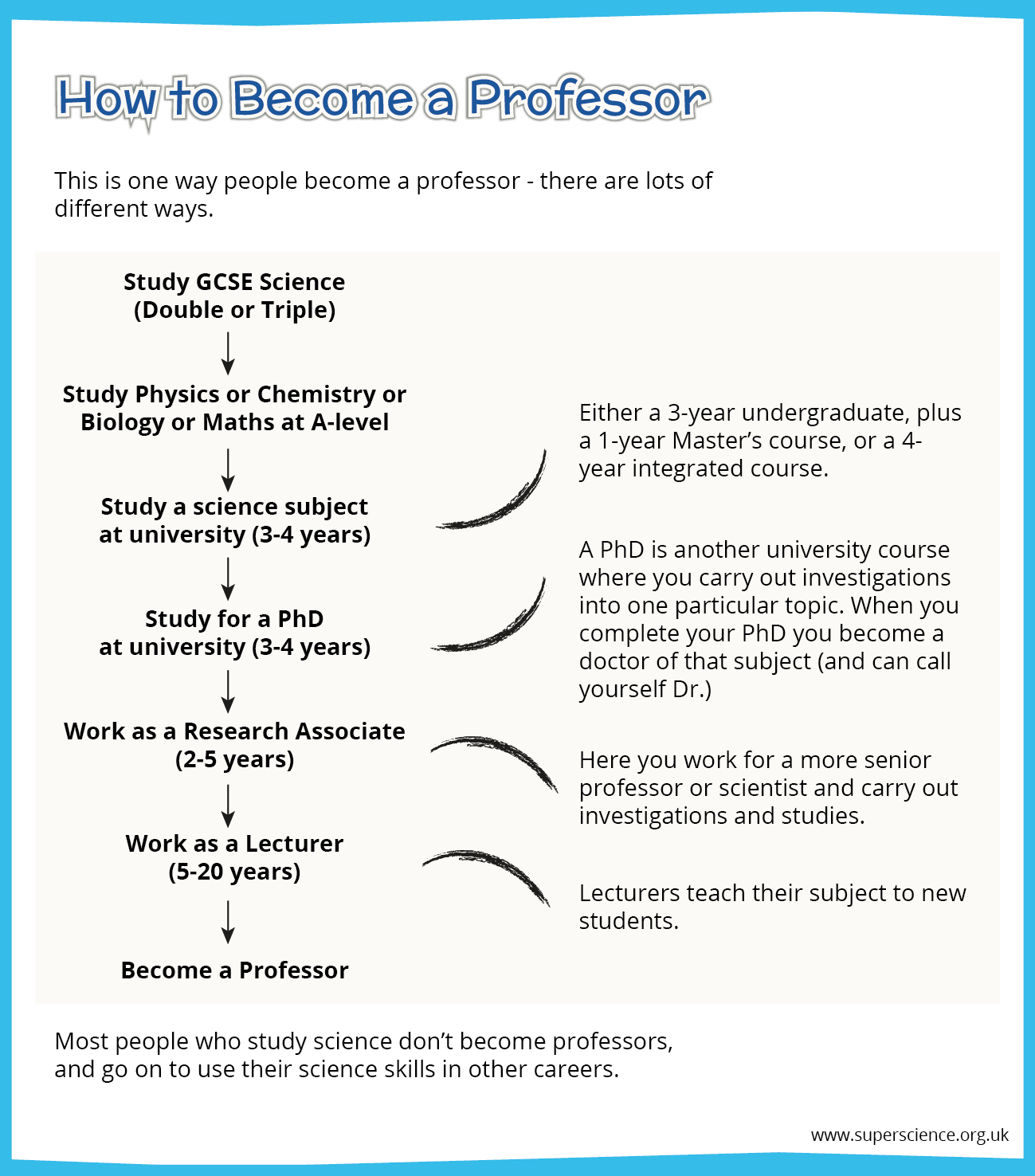Why study science?
-
Studying science is more than just being a scientist – it gives you the skills you need to do lots of different jobs.
-
You can make more money – on average students who study science can earn more money after leaving university than those who don’t.
-
Explore your creativity, and the universe, by science and engineering.
What jobs can studying science lead to?
-
Researcher – working in a university or company to discover new things
-
Entrepreneur – starting companies, using your science skills
-
Media – working as a journalist reporting on science stories
-
Forensics – helping solve crimes using forensic science
-
Finance – working for financial companies, helping them to make money
-
Policy – advising the government on new laws
-
Education – teaching young people about science
-
Communicator – talking about science to different groups of people
-
And many more…
Where can I find broader representation of who works in science?
There are many scientists, and people who study science, who come from non-science backgrounds.
-
Find out about scientists from the West Country on this website.
-
Find out about women who studied science and engineering and the wide-range of careers they have now.
-
Find out about networks supporting scientists and engineers (and specifically female scientists) of Black or Minority Ethnic origin.
What’s the difference between science, technology, engineering, medicine?
The labels given to different subjects can be confusing. As a rough guide here’s what each means:
-
Science – trying to understand how the universe works. Traditionally, it has been divided into physics, chemistry, biology, but nowadays these boundaries are blurred.
-
Engineering – using science to build machines and structures that solve a particular problem (find out more about what engineering is).
-
Technology – using science to solve practical problems, and create new machines (very similar to engineering)
-
Medicine – using science to identify, treat, and prevent diseases.
It’s all a bit fuzzy – often people studying these subjects are doing a mixture of these topics.
What if I like different parts of physics/chemistry/biology and don’t want to choose?
This is normal. If you’re interested in how the world works, the chances are you’ll like bits of lots of subjects. Some universities offer courses that are a mixture.
For example, biomedical engineers use scientific knowledge, to engineer (build) machines that help treat or heal health problems (for example: making a hearing aid). Some universities mix two subjects that might seem completely different, but may have deeper links:
If you like a mixture of different sciences, an interdisciplinary course could be the right choice for you. However, you shouldn’t worry too much about this, as if you study a core science such as Physics, Chemistry or Biology you can often move into an interdisciplinary area later.
Do I have to go to university to become a scientist?
No, some scientists go straight into work after school, and learn their science skills their. There are scientist apprenticeships, particularly in healthcare and biomedical industries, and other forms of technician training that can let you become a scientist too.
How do people become professors?
Most people who study science or engineering don’t become professors – studying these subjects use their skills in a wide range of careers.
Professors are people who’ve worked at a university for a long time to become experts in their particular area of research. There are lots of different ways of doing this; a common one is:

The steps shown in this image are: studying GCSE Science e.g. double of triple science, studying physics or chemistry or biology or maths at A-Level, studying a science subject at university for 3 to 4 years, work as a research associate for 2 to 5 years, work as a lecturer for 5 to 20 years, become a professor. Most people who study science don’t become professors and go on to use their skills in other careers.
Where can I find more information?
Check out the links page for links to other websites with lots of information about studying science.
